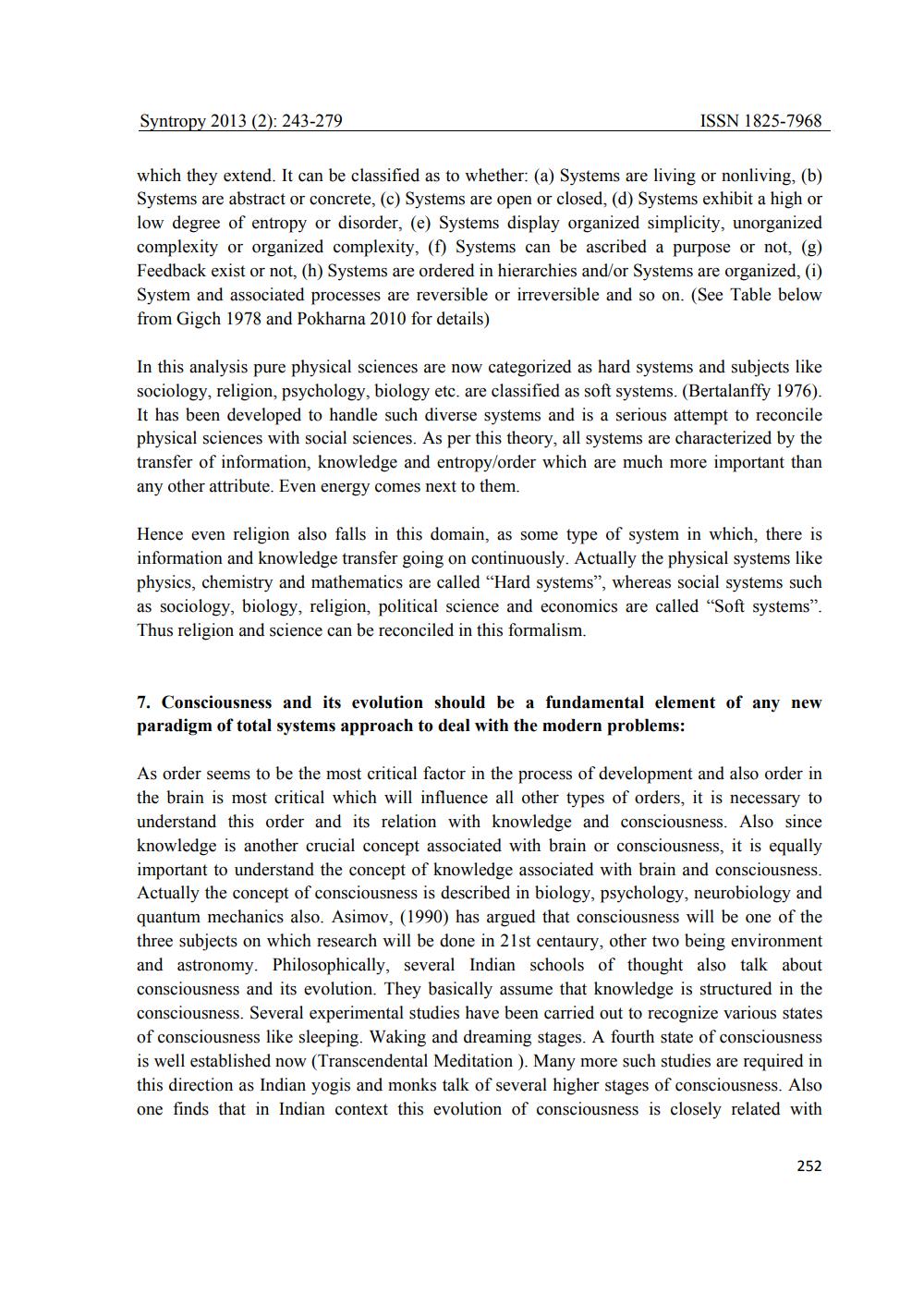________________
Syntropy 2013 (2): 243-279
ISSN 1825-7968
which they extend. It can be classified as to whether: (a) Systems are living or nonliving, (b) Systems are abstract or concrete, (c) Systems are open or closed, (d) Systems exhibit a high or low degree of entropy or disorder, (e) Systems display organized simplicity, unorganized complexity or organized complexity, (f) Systems can be ascribed a purpose or not, (g) Feedback exist or not, (h) Systems are ordered in hierarchies and/or Systems are organized, (i) System and associated processes are reversible or irreversible and so on. (See Table below from Gigch 1978 and Pokharna 2010 for details)
In this analysis pure physical sciences are now categorized as hard systems and subjects like sociology, religion, psychology, biology etc. are classified as soft systems. (Bertalanffy 1976). It has been developed to handle such diverse systems and is a serious attempt to reconcile physical sciences with social sciences. As per this theory, all systems are characterized by the transfer of information, knowledge and entropy/order which are much more important than any other attribute. Even energy comes next to them.
Hence even religion also falls in this domain, as some type of system in which, there is information and knowledge transfer going on continuously. Actually the physical systems like physics, chemistry and mathematics are called "Hard systems”, whereas social systems such as sociology, biology, religion, political science and economics are called "Soft systems”. Thus religion and science can be reconciled in this formalism.
7. Consciousness and its evolution should be a fundamental element of any new paradigm of total systems approach to deal with the modern problems:
As order seems to be the most critical factor in the process of development and also order in the brain is most critical which will influence all other types of orders, it is necessary to understand this order and its relation with knowledge and consciousness. Also since knowledge is another crucial concept associated with brain or consciousness, it is equally important to understand the concept of knowledge associated with brain and consciousness. Actually the concept of consciousness is described in biology, psychology, neurobiology and quantum mechanics also. Asimov, (1990) has argued that consciousness will be one of the three subjects on which research will be done in 21st centaury, other two being environment and astronomy. Philosophically, several Indian schools of thought also talk about consciousness and its evolution. They basically assume that knowledge is structured in the consciousness. Several experimental studies have been carried out to recognize various states of consciousness like sleeping. Waking and dreaming stages. A fourth state of consciousness is well established now (Transcendental Meditation ). Many more such studies are required in this direction as Indian yogis and monks talk of several higher stages of consciousness. Also one finds that in Indian context this evolution of consciousness is closely related with
252




